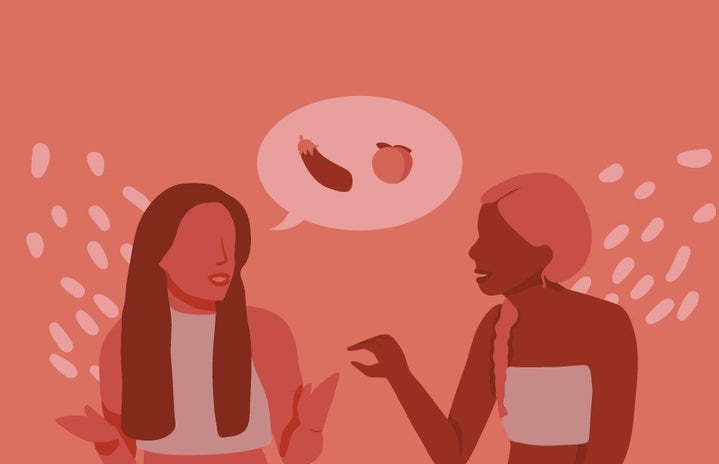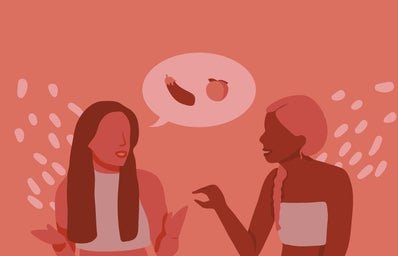When most people think of the term thrush or yeast infection, their reaction isn’t at first to think about the poor women facing such issues everyday but to recoil slightly at the idea of such infections. This is not fair and stems from a lack of education in such matters. The huge stigma surrounding thrush causes such reactions from most individuals but with the right education we can change the way we see such things. I spoke to Tori Ford at Medical Herstory, an award winning, international, not-for-profit on a mission to eliminate sexism, shame and stigma from health experiences. She shed some light on why we feel this way about such terms and how she hopes her research will help to end this.
Hi, please tell us about yourself and your organisation “Medical Herstory”.
I am studying for a PHD at Oxford University in primary healthcare and am currently focusing on the impact of recurrent vulvovaginal thrush and its labelling as trivial despite its reoccurring nature. Young women face medical dismissal and are often told that their experiences are “all in their heads” which is something that needs to be tackled. My research focuses on advancing gender health equity through storytelling, patient advocacy, and medical education. There are embedded structures of sexism and racism in medicine and we want to look into how to solve this.
You said you were researching patient experiences of recurrent vulvovaginal thrush – could you tell us a little bit more about that?
Of course. We have found that ¾ people with vaginas will experience thrush in their lifetime. Out of those, 1.2 million women in the UK have thrush as a repeated experience every week. The main issue we have come across is that thrush is rooted in shame and stigma so patients struggle to reach out and get the help they need. Not only this, but the condition is critically underfunded and under researched. We often hear from patients that they are not taken seriously and so don’t get the help they need. This research aims to tackle such ideas and to find out why women and people assigned female at birth feel this way.
As with many physical health issues, it sounds like thrush comes along with many mental health issues as well. What does your organisation do to try and tackle this?
I feel like there is such a trend of bodies being fragmented in the medical world with mental and physical health being separated. Of course there will always be mental repercussions of being physically unwell, and I feel we ned to treat these together, not apart. That’s why platforms just as Medical Herstory and Her Campus are important as they allow people to talk openly and break the stigma. We are currently making a video resource with information from those who have experienced recurrent thrush to support those going through the same – this will be available soon!
That sounds amazing! Just being told that your experience is valid and that others have come out the other side can help a patient so much with their approach to tackling their health. This research sounds so important, how can University of Warwick students get involved?
There are so many ways to get involved in this research to help us tackle the stigma around thrush. We really want to hear from young people about their experiences, so if you have suffered from recurrent vulvovaginal thrush or yeast infections, we would love to interview you and get to know how this affected you. You can email me with your experience (victoria.ford@phc.ox.ac.uk) and I will get back with how we can use this to help others going through the same thing.
Equally, though, if you would like to help tackle these issues of medical sexism, shame and stigma, you can volunteer at Medical Herstory. We recruit twice a year and you can email hr@medicalherstory.com to get involved! I love Her Campus and thought it was a brilliant platform for portraying the message that gender inequity is real; this is the main message we are trying to put across.
Here is the recruitment link: https://www.phc.ox.ac.uk/research/health-experiences/recurrent_thrush_primarycare
Why do you think non-for profits such as Medical Herstory are so important, especially at the moment?
There are problems that simply cannot be resolved with the systems we have in place now. I think rather than constantly asking them to do more and change, we need to start getting help from those who have experienced these issues first-hand. Putting new platforms in place is needed. Medical Herstory is by and for the people who have been through medical experiences. We are a completely youth-run company that consists of a young adults ready to talk about the issues surrounding gender equity in medicine.
I saw you had a feature on cosmopolitan this year, congratulations! What was that experience like and what would you say are the next steps for Medical Herstory?
Thank you! That was a huge milestone for us and our own journalist was able to write for them meaning our message came across really strong. Our next steps are doing more work with universities and medical schools. We want to embed the message of Medical Herstory into mainstream education and share our expertise in these sectors. We also really want to make sure that we make information that is otherwise only seen in content such as academic journals accessible to all readers.
Your Instagram (@medicalherstory) presents constant content explaining issues that a lot of women face. These posts are so useful and I have learnt so much about my own body in just a week of following the page. What inspires you to keep making such posts and why do you think this information is not so readily available elsewhere?
First of all, shoutout to Emma our Director of Media who is the reason that constant information is going out. We have so many themes on our Instagram such as ‘Medical Fact Monday’ and ‘Myth Busters’ that allow us to present seemingly complicated information in a short post. This is the issue, I think. Female bodies are seen as complicated things that are difficult to cure – the real issue is the lack of research into such matters and so by presenting them as simple we can begin to break this stigma.
What inspires you to keep going? Do you get any stories about how your company has helped?
I have been presented with so many stories that help us to continue making relevant posts to our readers issues. Recently we had someone reach out questioning how to communicate pain to a doctor effectively and confidently – we then found real life examples which helped them feel less ashamed of communicating their pain to a professional. We also recently had a week in which we focused on menopause and its effects. We had a reader reach out to tell us that it was the first time their mum had seen such clear and helpful discussions on the topic. That is what inspires us, seeing the help we provide.
Thank you so much for your time today, is there anything else you would like to add?
You’re welcome! Just to re-encourage University of Warwick students to get involved I suppose! We have monthly storytelling events that anyone can attend and have just done one on the opinions of medical students. Coming up next is an event exploring weight bias in medical care. These are really interesting events and are definitely worth coming along to! But overall I just want to reiterate our main aim: to get rid of gender equity in medicine and to encourage university students to help with this cause.
You can get in touch with Tori Ford at either:
or


